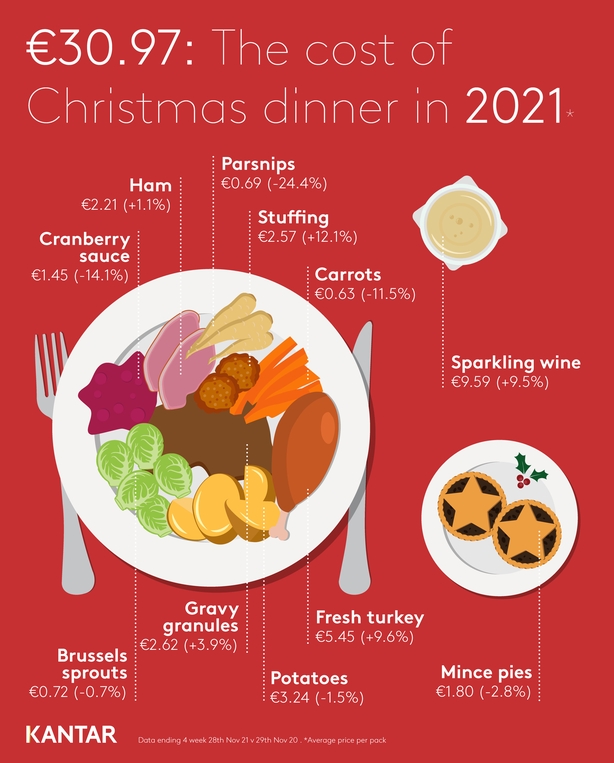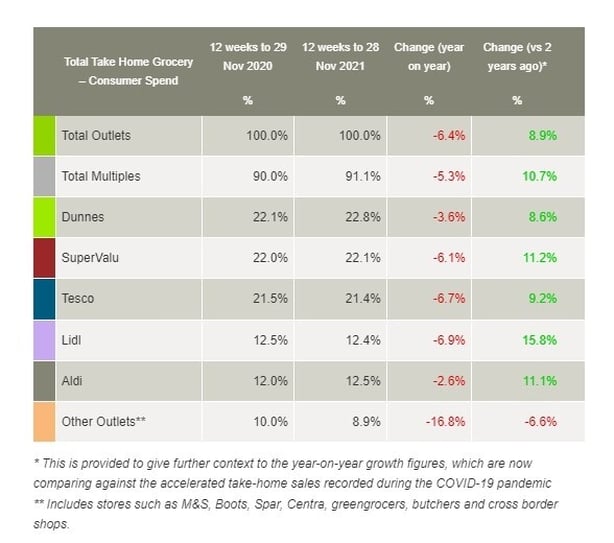New figures out today show that grocery market sales declined by 6.4% over the 12 weeks to November 28.
But Kantar said that grocery sales growth remains strong compared with pre-pandemic times and grocery sales were up 8.9% compared to the same time in 2019.
Kantar also pointed out that non-essential shops and offices were closed this time last year, so the situation in the latest four weeks has been very different with the hospitality sector open and many people working in the office for at least part of the week.
It also noted people have been buying less for meals at home and as a result, grocery sales dropped by 7.1% during the past month.
However, with new restrictions in place again from early December, it said it expects to see this decline to soften as people spend more time around their kitchen tables in the coming weeks.
Grocery price inflation stands at 1.2% over the latest 12 weeks as prices have been put under pressure by a series of supply chain issues complicated by Brexit and the pandemic.
"Shoppers will inevitably feel the impact on their Christmas budgets this year and we're already seeing prices for some festive staples nudge up.
"The price of a Christmas meal for four now stands at €30.97, which is 4.3% higher than it was last year," commented Emer Healy, a retail analyst at Kantar.

But she said that despite higher prices shoppers are still eager to make up for lost time this Christmas and it is clear that people are in the mood for a well-deserved treat after a long year of lockdowns.
"Premium own-label sales are rising, up by 2.4% over the latest 12 weeks. We saw premium own-label sales break records last December when sales topped €140m and the figure may be even larger this year," Ms Healy said.
Today's Kantar figures also show that more than one in ten people purchased groceries online this month and as a result digital grocery sales soared by 14.3% over the past four weeks.
"First-time online grocery converts were the main driver behind the jump in sales, showing the channel is yet to hit its ceiling in Ireland. We could see online orders grow even further as people start to limit time spent out of their homes under the latest restrictions," Emer Healy said.
Both SuperValu and Tesco have heavily invested in growing their digital capabilities since the start of the pandemic and achieved particular success through the channel this month, with online sales up by 8.8% and 11.4% respectively.
SuperValu holds a 22.1% share of the overall market this period while Tesco's share stands at 21.4%.

Dunnes holds the biggest share of the market this period at 22.8%. The grocer benefited from the biggest influx of new shoppers among all the retailers, a trend which added €34.6m to its overall performance.
Meanwhile, Aldi holds a 12.5% share of the market over the past twelve weeks, with Lidl just behind at 12.4%.

